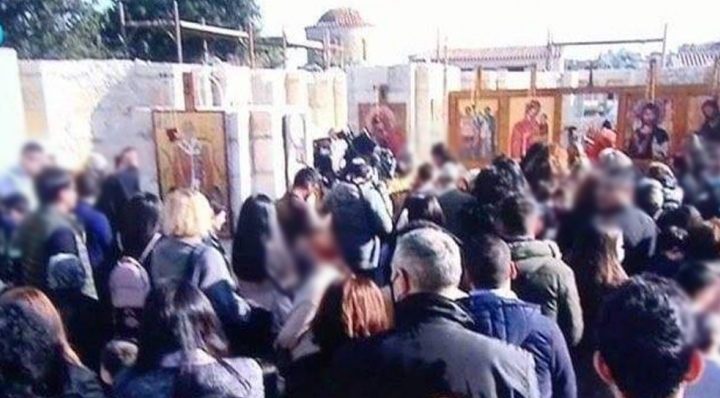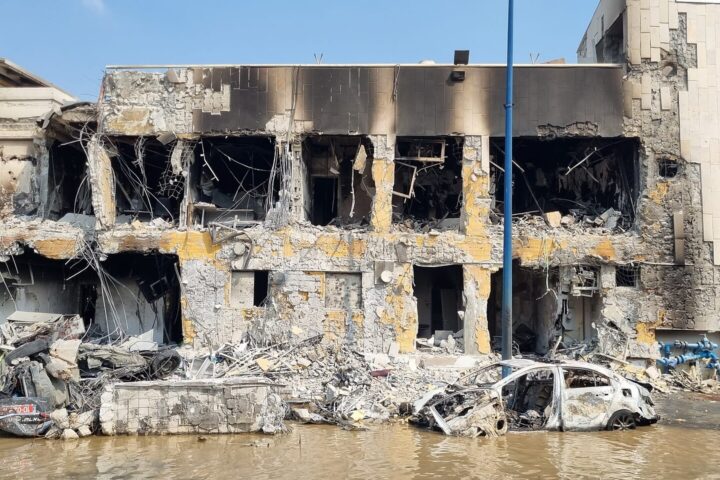(Histrionics until Christmas?)
By Tom Lawrence
The umpteenth round of fully fledged negotiations to solve the Cyprus problem are officially launched Wednesday and all eyes are again on “that little island with such a big problem”.
George Iacovou, Presidential Commissioner to Demetris Christofias on the Greek Cypriot side, has already played down expectations, telling the Sunday Mail that there will be “a nice photograph”, but adding that “there’ll be no ball game on Wednesday.”
Indeed, it looks like everyone expects a slow start. According to our sources, Alexander Downer, the UN’s political chief for the fully fledged negotiations, is not yet moving house – he is only here for a short visit this week – and the UN’s administrative chief, in charge of coordinating all those thousands of pieces of paper, has also put back arriving on the island.
So what can we expect from this round of talks?
In the positive-thinkers’ corner, we have the international community, “it’s our job to be positive”, as they say.
The positive argument says that Christofias and his counterpart in the talks, Turkish Cypriot leader Mehmet Ali Talat, are both from the same side of the political spectrum. Both say they want a solution and seem to mean it.
And according to our information, Turkey’s prime minister, Recep Tayipp Erdogan, is so strongly behind Talat that Talat was beaming all over after Erdogan’s last visit.
More importantly perhaps, if the reported observations of the long-serving UN teaboy are anything to go by, the negotiators in the 2008 talks get on much better than in any other set of negotiations. Opposing camps actually talk to each other during the tea breaks, rather than bitching to their own teams.
But in the negative-thinkers’ corner, we have the actual Cypriots, most of whom seem to be hunkering down for a long and difficult haul that they are sure will end in failure.
Since the preparatory talks began in April, I haven’t met a single Cypriot, Greek Cypriot or Turkish Cypriot, who thinks this will end in success.
And most of the depression centres on security and property. Turkey and the Turkish Cypriots won’t give up the beloved guarantee, but Greek Cypriots will never assent to a solution that keeps the detested guarantee.
But even if that issue is miraculously solved, so the thinking goes, the property issue is so complex (and has become even more so since the post-Annan building boom) that it will be impossible to satisfy a majority of voters on each side.
Some Cypriots are therefore deeply depressed that the leaders committed themselves on July 25 to simultaneous referenda.
So perhaps the more likely outcome of talks shouldn’t be judged by what was going on in the working group EU matters, where everyone loves the reasonable-talking former president, George Vassiliou who heads the Greek Cypriot team, or the economy, where most matters are decided by the EU and the teams get on so well they apparently spent most of their time eating.
No, the talks should really be judged by what went on in territory, where by all accounts the two sides just snarled at each other for 30 minutes before sloping back off home for another two weeks.
If the territory working group is the real reflection of reality, then the tiff last week over the Limnitis crossing is just a taste of worse to come.
The preparatory talks only had to identify areas of difference. From now on, the negotiators will handle the much more difficult task of coming to agreement.
And this time, the UN will only be observing, which will slow down the process of drafting an agreement.
Imagine: every sentence that a UN official would have written in neutral mode without even thinking will now first be written by a Greek Cypriot in Greek Cypriot terminology or by a Turkish Cypriot in Turkish Cypriot terminology.
Even if this doesn’t cause offence and more walk-outs, it still adds hours to the negotiation of each sentence.
But a delay might also be in the interests of both the Greek and Turkish Cypriots this time.
This because the international pressure on Turkey to deliver will come only in the second half of 2009, when the all-important October 2009 European Commission report is delivered.
Apart from a delay in a few chapters, Turkey was essentially given a reprieve until 2009 to sort out some of the major issues in its accession negotiations, notably its refusal to extend the customs union to the Republic of Cyprus.
If there is no significant progress this time, the pressure to stall negotiations altogether will increase.
At the same time, if the Greek and Turkish Cypriots can persuade EU leaders that their pesky EU-imported Cyprus problem won’t be solved until they give Turkey a much stronger signal for membership, then all the cards will be in the right place at the right time around mid-2009.
Add to this the fact that Talat and Christofias still don’t trust each other an inch and they still need to play to the nay-saying galleries on each side and you can see why they say that both are planning catfights all the way to Christmas.







